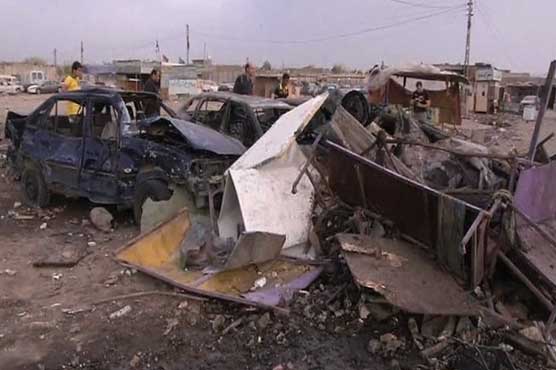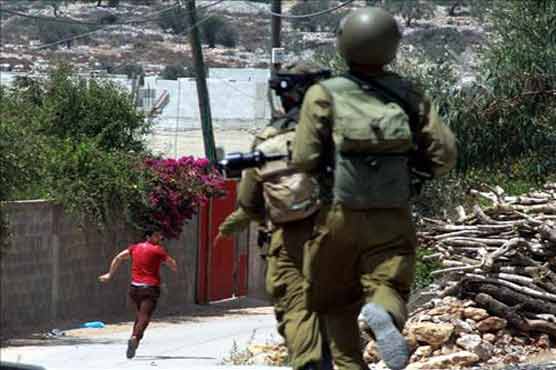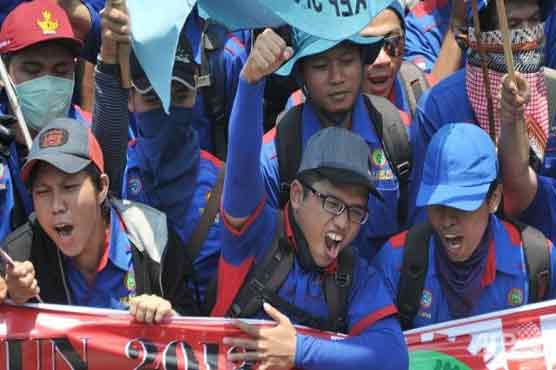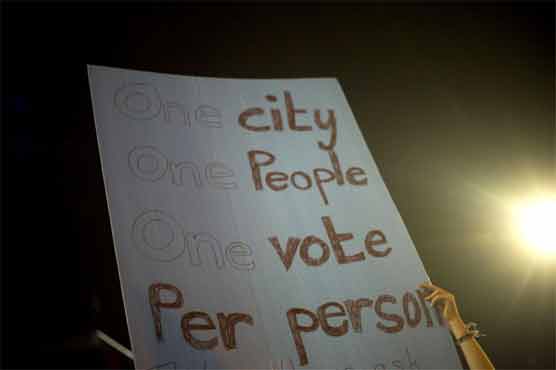
At least 26 people were killed in car bombs and other attacks across Iraq on Thursday.
BAGHDAD (AFP) - Five car bombs north of Baghdad killed 19 people Thursday, while attacks elsewhere in Iraq left seven more dead, officials said, the latest casualties in a nationwide spike in unrest.
The attacks, which wounded dozens, come as Iraq witnesses its worst violence since 2008, a surge in bloodshed that has killed more than 5,400 people this year despite authorities having carried out a swathe of operations and implemented tightened security measures.
They struck as Prime Minister Nuri al-Maliki visits Washington to press for military equipment and greater cooperation with the United States in fighting militants.
In Thursday s deadliest attack, twin car bombs in a residential area in Tuz Khurmatu, a disputed town north of Baghdad, killed seven people and wounded 42 others.
Three of the dead were from the same family.
As emergency responders rushed to the scene of the attack, a third bomb went off, but did not cause any casualties, Mayor Shallal Abdul told AFP.
"The two car bombs went off simultaneously, and bear the fingerprints of Al Qaeda," a police major, who spoke on condition of anonymity, told AFP.
Tuz Khurmatu is a majority Kurdish town which lies in a disputed area of northern Iraq, where both Iraq s autonomous Kurdish region and the central government in Baghdad vie for power.
It is frequently hit by deadly attacks.
Two more near-simultaneous car bombs went off in Khales, a restive town north of Baghdad, as a police patrol was passing, killing five people, including a policeman, officials said.
The attack, which struck in area filled with car dealerships, also wounded 15 others, including four policemen.
Another car bomb in Muqdadiyah, north of Baghdad, killed four people.
Police meanwhile found the bodies of three blindfolded women bearing multiple gunshot wounds to the head, execution-style, at an empty plot in a Shiite-majority neighbourhood in northeast Baghdad.
A police officer and a medical official said initial investigations showed the women were shot earlier on Thursday.
Summary executions were commonplace at the height of the Sunni-Shiite conflict in 2006-2007, when many thousands died.
Also on Thursday, gunmen killed a soldier and wounded two others in an attack targeting their patrol in the northern city of Mosul, while a roadside bomb targeting an army patrol northwest of the city left a soldier dead and two others wounded, officials said.
And two separate gun attacks and a roadside bombing north of the capital killed five people, including an anti-Qaeda militiaman, police and doctors said.
From late 2006 onwards, Sunni tribal militias, known as the Sahwa, turned against their co-religionists in Al Qaeda and sided with the US military, helping to turn the tide of Iraq s bloody insurgency.
But Sunni militants view the Sahwa as traitors and frequently target them.
Attacks so far in October have killed more than 730 people, according to an AFP tally.
The government has come under criticism for not doing more to address grievances in the Sunni Arab community over alleged ill treatment at the hands of the Shiite-led authorities.









 DAMASCUS: Syria’s entire declared stock of chemical weapons has been placed under seal, inspectors said Thursday, as international envoy Lakhdar Brahimi wrapped up a visit to muster support for peace talks.
DAMASCUS: Syria’s entire declared stock of chemical weapons has been placed under seal, inspectors said Thursday, as international envoy Lakhdar Brahimi wrapped up a visit to muster support for peace talks.
 ISLAMABAD: Argentinean Ambassador Rodolfo Martin Saravia calls for promoting interaction between the private sectors of the two countries.
ISLAMABAD: Argentinean Ambassador Rodolfo Martin Saravia calls for promoting interaction between the private sectors of the two countries.

0 comments: